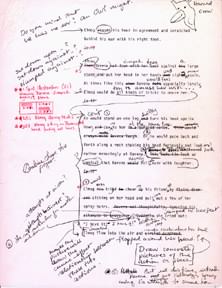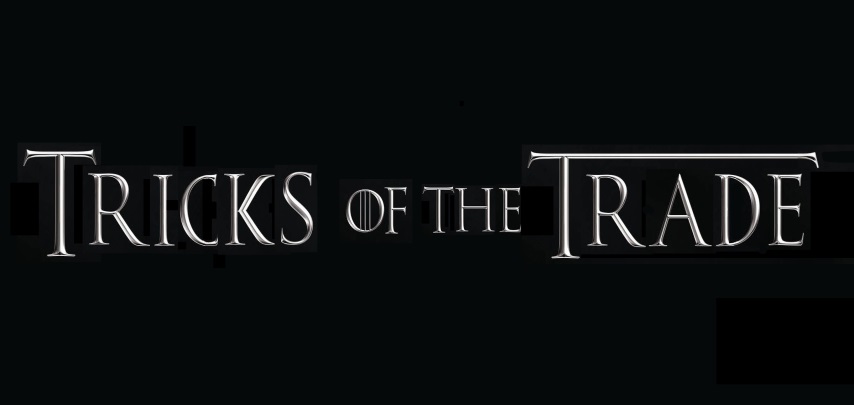Tricks of the Trade for Preaching
Tricks of the Trade for Preaching
We have been looking at what we can learn from television to improve our preaching. The string of posts begins here, if you want to catch up. In this post, I will begin looking at some of the tricks of the trade for preaching. What are some of the tricks that television producers use to produce winning programs?
Tricks of the trade are important in many skills. A few years ago, I decided to put tile in my kitchen and dining areas. I watched some Youtube videos, and read some things about how to do it. However, as I got well into the project, I had to cut tiles in awkward places. Since I didn’t know how to accomplish this well. I called someone who knew how to tile, and found that there are some tricks of the trade when laying out the floor. I didn’t know those tricks, and paid a price for it.
There are tricks of the trade for television, and they will hopefully become tricks of the trade for preaching your sermons.
Cross Promo
 Television producers will promote one show during another show. For instance, during the Today show, which begins airing at 7 am and runs in various forms until 10 am, they will often advertise an interview that will take place during another NBC show, Dateline, which airs at 9 pm. The host of Today will run a clip of an interview, and invite people back to hear the “whole story”.
Television producers will promote one show during another show. For instance, during the Today show, which begins airing at 7 am and runs in various forms until 10 am, they will often advertise an interview that will take place during another NBC show, Dateline, which airs at 9 pm. The host of Today will run a clip of an interview, and invite people back to hear the “whole story”.
If you preach in a church, you are familiar with cross promo. I’m writing this on Sunday afternoon. This morning, in my church, we had an announcement about a fundraising meal that will help send a group on a mission trip. That’s cross promoting.
You can do this with preaching as well. It is wise, in your scheduling of sermons, to come up with series that have a catchy name. You can read about this in the post you will find here. Then you can do promos from week to week about the titles of messages coming up. That would be one of the tricks of the trade for preaching your sermons.
Tricks of the Trade for Preaching #2: Edit
A second trick of the trade that television producers use is editing. Television writers are expected to repeatedly edit a program in order to cut out the “fluff”. The goal is for a program to say everything that is essential, but no more.
As I wrote that last sentence I remember a pastor that I had many years ago. He was known for his long sermons, but he was not known as a good preacher. It was frustrating to listen to him wander around a theme, repeating himself often along the way. I believe he would have been a much more effective preacher if he had gone through an editing process, shortening the message to the essence of what he wanted to say.
I have written articles for publication. In that medium, editing is also crucial. I was given a limit, a number of words that I was not to go beyond. So, I would write what I wanted to say. Then, I would realize that I had too many words, so I would have to edit, edit, and edit, until I got it just right.
 This practice, I believe, would be profitable for most of us who preach; to write our sermons, and then to edit them. In our media impacted culture, shorter is most likely better. Haddon Robinson, prince of preaching teachers, once said in a lecture, “Studies show that in our culture, if you preach over 30 to 35 minutes, for every minute or so that you go over you decrease your effectiveness.”
This practice, I believe, would be profitable for most of us who preach; to write our sermons, and then to edit them. In our media impacted culture, shorter is most likely better. Haddon Robinson, prince of preaching teachers, once said in a lecture, “Studies show that in our culture, if you preach over 30 to 35 minutes, for every minute or so that you go over you decrease your effectiveness.”
In the next post we’ll look at some more of the tricks of the trade for preaching, things like evaluation of your messages, titles, planning ahead, etc. So stay tuned.
Here’s another trick of the trade that will help your preaching, preparing to turn your sermons into a manuscript.




Leave a Reply
Want to join the discussion?Feel free to contribute!